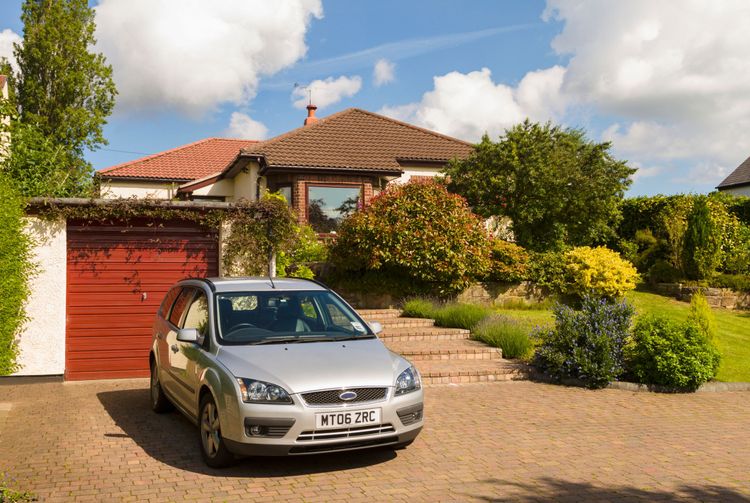Alloy Wheels: Meaning, Types, Benefits & Tips to Maintain
Car enthusiasts who enjoy learning about the nitty-gritty details of what goes into car enhancement are well aware of alloy wheels' meaning and their role in overall car performance.
This is because alloy wheels not only enhance your vehicle's visual appeal but also increase performance and efficiency to a whole new level.
In this detailed guide, we will understand the use of alloy wheels, the various benefits of alloy wheels, and how to choose the best ones for your car for maximum performance enhancement.
Share this article
Protect Your Ride with the Best Car Insurance Plans
Believe it or Not! Save upto* 75% on TATA AIG Car Insurance
List of Content
- What are Alloy Wheels?
- Different Types of Alloy Wheels
- Benefits of Alloy Wheels
- Comparison Between Alloy and Steel Wheels
- Top Purchase Parameters for Alloy Wheels
- Tips to Extend the Use of Alloy Wheels
- Does Car Insurance Offer Coverage for Alloy Wheels?
- Conclusion
- FAQS
What are Alloy Wheels?
Alloy wheels are rims manufactured using a blend of different materials, commonly magnesium or aluminium. The use of these materials, as opposed to steel rims, helps increase the car's performance due to their lightweight counterparts.
This is because the lightweight rims directly impact fuel consumption and permit quicker acceleration, resulting in better car control.
The demand and awareness of alloy wheels witnessed a significant increase ever since motorsport companies started shifting their focus to them. Eventually, commercial car manufacturers switched over to them as well, resulting in competitive car alloy wheel prices.
Different Types of Alloy Wheels
One-Piece Alloy Wheels
One-piece alloy wheels are one of the most common types of alloy wheels available in the market. They come in a variety of styles and offer budget-friendly options to ensure better affordability for the same benefits for everyone.
These wheels are crafted as a solid single unit, making them a lightweight addition to any car to enhance the car’s performance without adding too much weight and pressure. They are ideal for everyday driving.
Two-Piece Alloy Wheels
These alloy wheels consist of a forged barrel and a centre cast section. Each of these additions impacts different aspects of the wheel. They are commonly used in high-performance cars.
While the centre cast section enhances the look of the car wheels with their design language, the forged barrel directly impacts the car’s performance as it adds significant strength to the car, improving its balance.
Three-Piece Alloy Wheels
As the name suggests, three-piece alloy wheels contain three parts. An inner rim, an outer rim, and a solid aluminium block. Given the separate sections and the integration of the solid aluminium block, the durability of these wheels is higher.
Moreover, even with the three-piece design, these alloy wheels are more lightweight, enhancing car performance.
Multi-Piece Alloy Wheels
These alloy wheels are similar to one-, two-, and three-piece alloy wheels. However, multi-piece alloy wheels allow the car owner to customise the wheel design and performance completely.
Based on the individual requirements, you can decide the number of components above three you require in the wheel for the type of performance you are aiming for.
These wheels are commonly popular for race cars or highly modified cars and are not the best option for everyday driving. Moreover, they are also more expensive due to their complexity.
Forged Alloy Wheels
The key difference for this category of alloy wheels is the manufacturing process. These wheels are made of an aluminium block, which undergoes an extensive forging process. The high-pressure process uses a strong spinning mould instead of the traditional forging die.
These wheels are also lightweight and offer better handling control and high performance, making them ideal for race cars. However, due to the forging process, the car alloy wheel price range for this category is on the expensive side.
Spun Alloy Wheels
Similar to forged alloy wheels, spun alloy wheels are also crafted using the forging process. These wheels also undergo a high-pressure forging process using a spinning mould, but the performance enhancement is more suitable for everyday driving.
The process makes the wheel lightweight, but due to limited performance enhancement, the price range for this alloy wheels category is on the affordable side when compared to forged wheels.
Carbon Fibre Alloy Wheels
These alloy wheels offer a unique combination of carbon fibre and aluminium. The wheel is manufactured with carbon fibre with an inner rim of strong aluminium, providing a favourable ratio of weight and strength.
Moreover, the integration of carbon fibre allows better heat dissipation for the wheels, making it an ideal wheel category for high-end racing cars. Due to these unique features, the pricing of carbon fibre alloy wheels is on the higher side.
Flow-Formed Alloy Wheels
Another category of alloy wheels is flow-formed alloy wheels. These wheels are also called flow-forged wheels because the manufacturing process includes a mix of forging and casting.
Due to the mix of these two processes, the wheels are lightweight and offer great performance but are more affordable than fully forged alloy wheels.
Beadlock Alloy Wheels
The Beadlock alloy wheels come with a locking ring to hook the tyre to the rim properly. This ensures that the wheel works perfectly in any road condition without slipping off from its base structure.
These wheels are highly efficient for off-roading trips, where the car requires more support and better balance to navigate the road conditions.
Monoblock Alloy Wheels
These alloy wheels are similar to one-piece alloy wheels. However, they are more straightforward in nature as they are manufactured using only one piece of aluminium but with stronger design language.
This makes these wheels a better budget-friendly alternative to the traditional one-piece alloy wheels mentioned above.
Benefits of Alloy Wheels
They are lighter than traditional steel wheels.
They are available in a wide variety to cater to specific car and performance needs.
They come in a varying price range to fit different budget constraints without impacting performance promise.
All the different types of alloy wheels offer better performance, car balance and handling.
Along with performance enhancement, these alloy wheels also enhance the car's visual appeal, making it more eye-catching.
They offer ample customisation flexibility.
With performance enhancement, alloy wheels also improve fuel consumption and efficiency, making it a great investment.
Comparison Between Alloy and Steel Wheels
| Features | Alloy Wheels | Steel Wheels |
|---|---|---|
| Weight | They are lightweight | They are heavy-weight |
| Performance | They offer better performance as lightweight increases handling abilities and provides enhanced acceleration. | They offer standard performance for everyday driving. |
| Variations | They come in a wide variety to suit different cars and drivers or road conditions. | They come in limited style variations. |
| Fuel consumption | They offer better fuel consumption as they are lightweight in nature. | They offer low fuel efficiency as they are heavier, resulting in more pressure on the car and wheels for driving. |
Top Purchase Parameters for Alloy Wheels
Assess the road conditions to understand and choose the right type of alloy wheels to integrate with your car design. For instance, for off-roading purposes, choosing Beadlock alloy wheels will be a great option.
The decision of which alloy wheels to choose for your car also depends on the vehicle model and make as well. The bolt patterns, wheel diameter, and other components of the car help decide the choice of alloy wheels. This will ensure better compatibility and performance.
There are different types of alloy wheels in the market. Based on your budget for car modifications, you should compare different types of alloy wheels and their use cases for car makes and models to choose the one that best meets your budget and requirements.
As stated above, all the different types of alloy wheels offer unique features and varying performance enhancements. You must assess the purpose behind your alloy wheels to choose the one that best aligns with your performance requirements.
Tips to Extend the Use of Alloy Wheels
To reduce the risk of corrosion, regularly clean your alloy wheels with a mild soap and water mix.
Take your car for a regular vehicle inspection to check for cracks or corrosion and get immediate maintenance and repair recommendations. This will ensure a constant check on the alloy wheels.
Avoid contact between the car and curb ends as they impact the wheel structure and performance significantly. This will require you to practice safe driving and parking control because structural damage can have a lasting impact.
Does Car Insurance Offer Coverage for Alloy Wheels?
Yes and no. A basic comprehensive plan will not cover tyre repair and replacement – unless due to an accident where the car itself is also damaged. Hence, consider getting Tata AIG’s comprehensive four-wheeler insurance with a tyre protection add-on.
A tyre protection add-on can offer coverage for your alloy wheels in the event of an accident that results in bulges, punctures, burst tyres or cuts – to your tyres, even when your car does not sustain any damage during the crash.
To buy our car insurance plan, visit our website, compare car insurance plans available, choose your add-ons, apply and pay! All of this can be done in just a few clicks.
If you are worried about costs, don’t worry, we offer affordable car insurance price ranges to suit different budgets.
Conclusion
If you are looking for style and performance enhancement for your car, alloy wheels are a great investment. With a wide range of design and style options available, you can elevate your driving experience and car aesthetics.
Moreover, with the assurance of performance enhancement, alloy wheels make a promising investment option for your car. Hence, assess your needs and the types available to make the best use of alloy wheels for your car.
FAQS
What other add-ons, except tyre protection, are available with a comprehensive car insurance plan?
Other than tyre protection, some popular add-ons available with a comprehensive car insurance plan include key replacement cover, emergency hotel and transport expenses, No Claim Bonus cover, engine protection cover, etc.
How to prevent curb damage to my wheels?
To prevent curb damage, you must avoid parking too close to any curb. Moreover, in case of curb interaction, take your car for a quick inspection to assess any damage to the wheel structure to get it repaired instantly.
Protect Your Ride with the Best Car Insurance Plans
Believe it or Not! Save upto* 75% on TATA AIG Car Insurance
People also search for
Key Insurance term
Share this article
Latest from our blogs

Zero Depreciation Car Insurance Cover
zero depreciation / depreciation reimbursement cover reimbur...
Read More
What is Insured declared value (IDV)?
The term ‘IDV’ refers to the maximum claim your insurer will...
Read More
How is your car insurance premium calculated?
Well it’s about time that changed, don’t you think? Read on ...
Read More